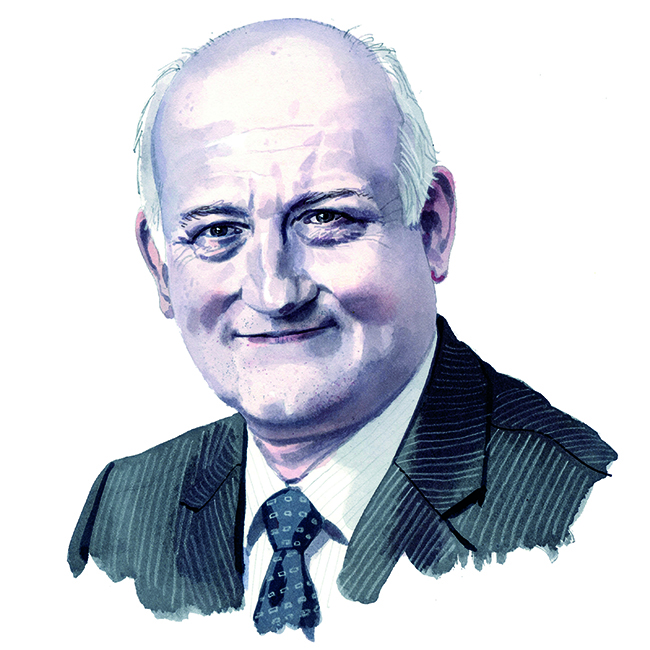View from the institute: Planning for the unknown

Internal auditors deal with uncertainty all the time – and one benefit to emerge from shared experiences over the past 18 months is that others in organisations have become more aware of, and sympathetic to, those whose jobs revolve around mitigating the risks associated with this. It is nothing new, but the degree to which it affects us fluctuates and managers are more aware of it than ever, which is just as well given that we should expect high levels of uncertainty to continue for months, possibly years, to come.
This is one of the key messages from our Risk in Focus research, published this month. Major themes for respondents this year were uncertainty about the effects of climate change and about the human issues related to jobs, “hybrid” working styles and wellbeing as we progress through (and, we hope, emerge from) the Covid pandemic.
There are many questions for individuals and organisations to answer: Will employees be asked to, or want to, return to offices? What effect will this have on city economies, housing and office requirements? Will the vaccination programme prevent further lockdowns? Will organisations be able to find people with the skills they need where they need them in a post-Brexit, post-pandemic world? Will shifts in customer and employee behaviour continue once the world opens up fully again?
There are already signs of long-term changes. In the past couple of months, we have seen large organisations move into new sectors – John Lewis into the housing and rental market, cigarette manufacturers into producing ventilators – while others are shifting to meet emerging demands, such as Nissan escalating its electric car production in the UK. Supply chain crises during lockdowns are prompting organisations to seek new suppliers closer to home, or to move their factories closer to their main suppliers.
The end of lockdowns will release pent-up demand for change. One piece of research suggested that 48 per cent of the working population are thinking of moving jobs, while analysts predict a surge in mergers and acquisition activity.
Chronic shortages of staff, particularly acute in some sectors, are unlikely to reduce soon, which may necessitate new ways of working and relationships with existing staff – but could also prompt developments in artificial intelligence and robotics.
All these sources of uncertainty are closely interrelated – staff shortages will affect, and be affected by, changes to Covid restrictions, the ability of organisations to reopen, access supplies and fulfil existing orders.
The Road Haulage Association estimates there is a shortage of more than 100,000 drivers in the UK, out of a pre-pandemic total of about 600,000, and, as I write this, manufacturers and retailers are having to cut operating hours in a “pingdemic” as staff fall ill or are told to self-isolate.
Climate change uncertainty is also a crucial element in many and varied risks. Earlier this summer the US and Canada were hit by an unprecedented heatwave, while Germany, Belgium and the Netherlands suffered from catastrophic freak floods in July. One weather event does not indicate climate change, but a pattern of regular “once-in-a-lifetime” extremes fits the scientific predictions of greater instability and uncertainty in our weather patterns.
Long-term decisions about anything from headquarter locations and supply chains to product lines and investments should all take climate change into account, even though we still cannot know what the outcomes will be or how they will affect us.
Internal auditors have an important role to play helping organisations to understand the uncertainty surrounding many of the risks they face and to ensure it is taken into account in strategic decisions and risk assessments. They can also champion action to monitor, assess and mitigate long-term factors such as climate change, while also providing assurance on the organisation’s preparations to meet future crises.
This is one reason why the Chartered IIA recently signed up to the Climate Change for Associations initiative (CAFA), which aims to harness the power of whole sectors to drive climate change awareness and action. A Climate Action Working Group will oversee the development and execution of the institute’s plan to achieve net zero and includes representatives from all the main business functions across the institute, including the executive members.
Council approved a resolution in July to commit the institute to doing all that is practicable to meet net zero and the next step is to quantify the institute’s carbon footprint, using CAFA’s carbon calculator. Once we have a clear idea of our carbon footprint, we can take steps to reduce it, but, of course, there is no reason why we can’t take commonsense steps immediately if there are
easy wins.
All this and more will be addressed by speakers at our annual conference on 2-3 November. Like others, the Chartered IIA is adapting to uncertainty about travel and social gatherings, as well as to the benefits of new technology and the evolving needs of our members, so this year, for the first time, our conference will take place both digitally and at regional locations, making sessions safe and accessible for internal auditors from across the UK and Ireland.
The future is always uncertain, and perhaps we are just more aware of this than usual at the moment, however this period of heightened awareness offers internal auditors an opportunity that we cannot afford to miss. We should welcome current levels of concern – knowledge is power in an uncertain world and internal audit can be a great resource of organisational knowledge.
We need to show management how this can help them to navigate stormy waters ahead.
This article was first published in September 2021.








